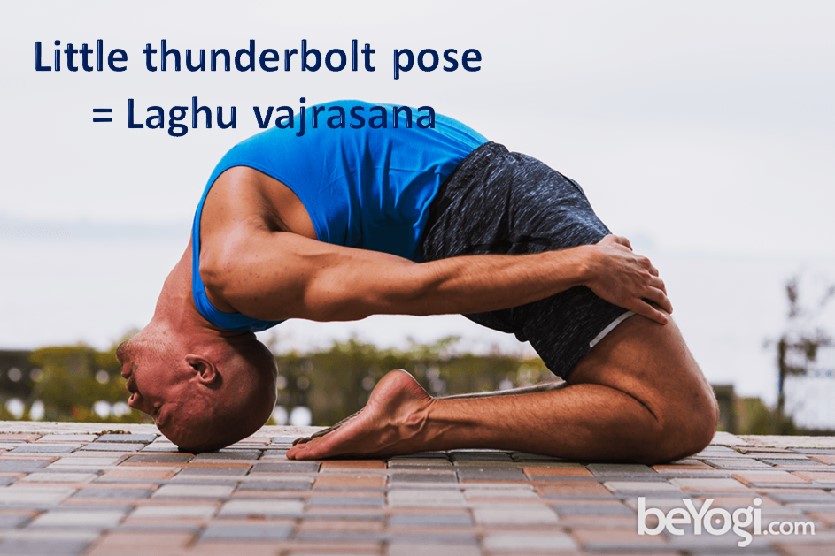
Little Thunderbolt Pose
Little thunderbolt pose is an advanced back bend yoga pose. It is included in Ashtanga yoga’s second series. If you are familiar with camel pose, then getting into thunderbolt pose is bit easy.
However, care should be taken when we perform this pose as it is totally a back bend pose. Important to remember is while performing this pose to avoid crunching of lower back, keep the chest moving up and the glutes soft to lengthen the spine.
Moving up the chest and lowering back gives flexibility to thigs. Advantage and benefit of doing this pose is: it opens throat, quadriceps, chest and strengthens the spinal and abdominal muscle strength.
Another benefit is it increases spinal mobility. It is an intense pose and needs back bend practice.
If you are new to this pose, perform this pose under guidance of an instructor till you feel comfortable doing it on your own. Healthylife.werindia.com
Sanskrit: Laghu Vajrasana (lah-guu vahj-RAHS-anna) laghu = little, small ; vajra = thunderbolt
BENEFITS
- Strengthens the legs
- Increases spinal flexibility
- Tones the spinal nerves
- Stretches the abdominal muscles
CONTRAINDICATIONS
- Knee, neck, or low back injuries
- High or low blood pressure
- Headache
- Insomnia
HOW TO
- Kneel on the floor with your knees hip-distance wide and thighs perpendicular to the ground. Place your hands on your thighs.
- Slowly lean back while pushing your hips and thighs forward. Come into a deep backbend and rest the crown of your head on the soles of your feet.
- Slide your hands down to hold onto your knees.
- Stay in the pose for several breaths. To come out of Little Thunderbolt pose, strongly press the tops of your feet into the floor, and activate your core and legs. Push your pelvis forward and rise up, letting the head be the last to rise.
MODIFY OR REPLACE
Alternatives:
- Ustrasana (Camel pose)
- Urdhva Dhanurasana (Wheel pose)
Modifications:
- Come only halfway down and hold for a few breaths.
- Place a block under the head for support.
SEQUENCING TIPS
Before:
- Ustrasana (Camel pose)
- Matsyasana (Fish pose)
After:
- Vajrasana (Thunderbolt pose)
- Balasana (Child’s pose)
- Paschimottanasana (Seated Forward Bend)
TEACHING CUES
- Push your thighs and buttocks forward.
- Keep your head back as you come out of the pose.
VARIATIONS
- Kapotasana (King Pigeon pose)
WATCH OUT FOR
- Weight bearing on the head
Image and description of Little thunderbolt pose is republished with permission from www.beyogi.com. Visit www.beyogi.com for more such poses.
Author: HealthyLife | Posted on: July 27, 2017






















Write a comment